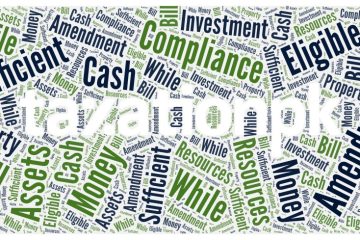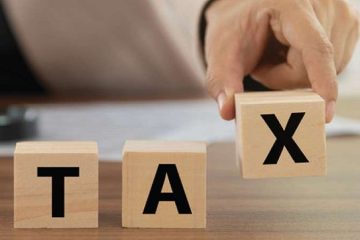Federal Board of Revenue (FBR) is undergoing a significant digital transformation, revolutionizing the way individuals and businesses file their taxes. Recognizing the inefficiencies and limitations of traditional paper-based systems, the FBR has embarked on a journey to digitalize tax filing processes, particularly for sales tax and income tax. This move towards e-governance is aimed at enhancing convenience for taxpayers, boosting revenue collection, improving transparency, and modernizing Pakistan’s tax administration.
Digitalizing Income Tax Filing: Convenience and Efficiency at the Forefront
The FBR has made substantial strides in digitalizing income tax filing, making it significantly easier for taxpayers to comply with their obligations. Key initiatives include:
- E-Filing Portal: The cornerstone of this digital shift is the FBR’s online e-filing portal. This platform allows individuals and businesses to prepare, verify, and submit their income tax returns electronically from anywhere with internet access. This eliminates the need for physical visits to tax offices and reduces reliance on cumbersome paper forms.
- Simplified Online Forms: The FBR has introduced user-friendly online forms that are designed to be intuitive and easy to navigate. These digital forms often include built-in guidance and validation checks to minimize errors.
- Pre-filling of Information: To further simplify the process, the FBR is working towards pre-filling tax returns with readily available information. This can include data from employers, banks, and other sources, significantly reducing the data entry burden on taxpayers.
- Automated Calculations and Tax Tools: The online system automates tax calculations, ensuring accuracy and reducing the chances of manual errors. Tax calculators and other online tools are often integrated within the portal to assist taxpayers in estimating their tax liabilities and understanding tax regulations.
- Online Payment Options: Digitalization extends to tax payments, with the FBR offering various online payment methods through banks and other digital channels. This provides a secure and convenient alternative to traditional cash or cheque payments.
- 24/7 Accessibility and Support: The e-filing portal is accessible 24/7, offering taxpayers the flexibility to file their returns at their convenience. Online help resources, FAQs, and potentially chatbots are being implemented to provide taxpayers with support and guidance throughout the filing process.
Digitizing Sales Tax (GST) for Enhanced Compliance and Revenue
The digitalization drive also extends to sales tax, a crucial component of Pakistan’s revenue generation. The FBR is actively working to streamline sales tax processes through digital means, focusing on:
- Online Registration and Enrollment: Businesses can now register for sales tax and obtain their Sales Tax Registration Number (STRN) online through the FBR portal, eliminating lengthy manual registration procedures.
- Electronic Filing of Sales Tax Returns: Similar to income tax, the FBR has mandated e-filing for sales tax returns. Businesses are required to submit their monthly sales tax returns electronically, providing detailed information about their sales and purchases.
- E-Invoicing (Potential Future Step): While not fully implemented yet across all sectors, e-invoicing is being explored as a future step to further digitalize sales tax. Electronic invoicing would involve the digital generation and transmission of invoices directly to the FBR system, enhancing transparency and reducing the scope for underreporting.
- Online Verification and Validation: The digital system allows for online verification of sales tax registrations and validation of submitted data, improving data integrity and reducing fraudulent activities.
- Integration with Point of Sale (POS) Systems: The FBR is encouraging and in some sectors mandating the integration of businesses’ Point of Sale (POS) systems with the FBR’s digital network. This allows for real-time reporting of sales data, further improving transparency and tax collection.
Technology Powering the Digital Transformation
The FBR’s digital transformation is underpinned by a range of technologies, including:
- Robust Online Portals: User-friendly and secure web portals serve as the primary interface for taxpayers to interact with the FBR’s digital services.
- Secure Databases and Cloud Computing: Secure databases and cloud infrastructure are essential for storing and managing vast amounts of taxpayer data and ensuring system scalability and reliability.
- APIs and Data Integration: Application Programming Interfaces (APIs) facilitate seamless data exchange between different systems, enabling pre-filling of forms and integration with financial institutions and other relevant entities.
- Mobile Technology (Emerging): While currently primarily web-based, the FBR is likely to explore mobile applications in the future to further enhance accessibility and convenience, particularly for smaller taxpayers.
- Data Analytics and AI (Future Potential): As digitalization matures, the FBR can leverage data analytics and Artificial Intelligence (AI) to improve risk assessment, detect fraud, and personalize taxpayer services.
Benefits of Digitalized Tax Filing
The digitalization of tax filing by the FBR offers significant advantages:
- Enhanced Taxpayer Convenience: E-filing is significantly more convenient and accessible for taxpayers, saving time and reducing bureaucratic hurdles.
- Increased Efficiency and Speed: Digital processes are faster and more efficient, reducing processing times for returns and refunds.
- Improved Accuracy and Reduced Errors: Automation minimizes manual errors and improves data accuracy, leading to fewer compliance issues.
- Faster Refund Processing: Digital processing accelerates refund cycles, providing taxpayers with quicker access to their funds.
- Boosted Revenue Collection: Enhanced compliance, reduced tax evasion, and a broader tax base contribute to increased revenue collection for the government.
- Greater Transparency and Accountability: Digital systems improve transparency in tax administration and enhance accountability.
- Reduced Administrative Costs: Digitalization reduces the FBR’s administrative costs associated with paper processing, storage, and manual operations.
Challenges and the Path Forward
Despite the significant progress, the FBR faces ongoing challenges in its digitalization journey:
- Digital Literacy and Access: Ensuring digital literacy among all taxpayer segments and addressing the digital divide in terms of internet access remains crucial.
- Cybersecurity and Data Privacy: Robust cybersecurity measures and data privacy protocols are paramount to maintain taxpayer trust and prevent data breaches.
- Integration with Legacy Systems: Seamless integration of new digital systems with existing legacy infrastructure can be complex and require ongoing effort.
- Change Management and User Adoption: Encouraging widespread adoption of digital filing and overcoming resistance to change from both taxpayers and some tax officials is an ongoing process.
Looking ahead, the FBR is likely to further enhance its digital tax filing systems by:
- Expanding Mobile Accessibility: Developing user-friendly mobile applications to make tax filing even more accessible, especially for individuals and smaller businesses.
- Leveraging AI and Machine Learning: Implementing AI-powered chatbots for taxpayer support, using data analytics for improved risk assessment and fraud detection, and personalizing taxpayer services.
- Promoting Digital Tax Awareness: Conducting nationwide campaigns to educate taxpayers about the benefits of digital tax filing and provide training and support.
- Expanding E-Invoicing and Real-Time Reporting: Gradually expanding e-invoicing to more sectors and moving towards real-time sales data reporting to further enhance sales tax compliance.
A Modernized Tax System for Pakistan
The FBR’s commitment to digitalizing tax filings for sales and income tax is a transformative step towards modernizing Pakistan’s tax administration. By embracing technology, the FBR is creating a more efficient, transparent, and taxpayer-friendly system. This digital revolution not only simplifies tax compliance but also strengthens revenue mobilization, paving the way for a more robust and sustainable fiscal future for Pakistan. As digitalization efforts continue to mature, the FBR is poised to establish a truly 21st-century tax administration system, benefiting both the government and the citizens of Pakistan.




